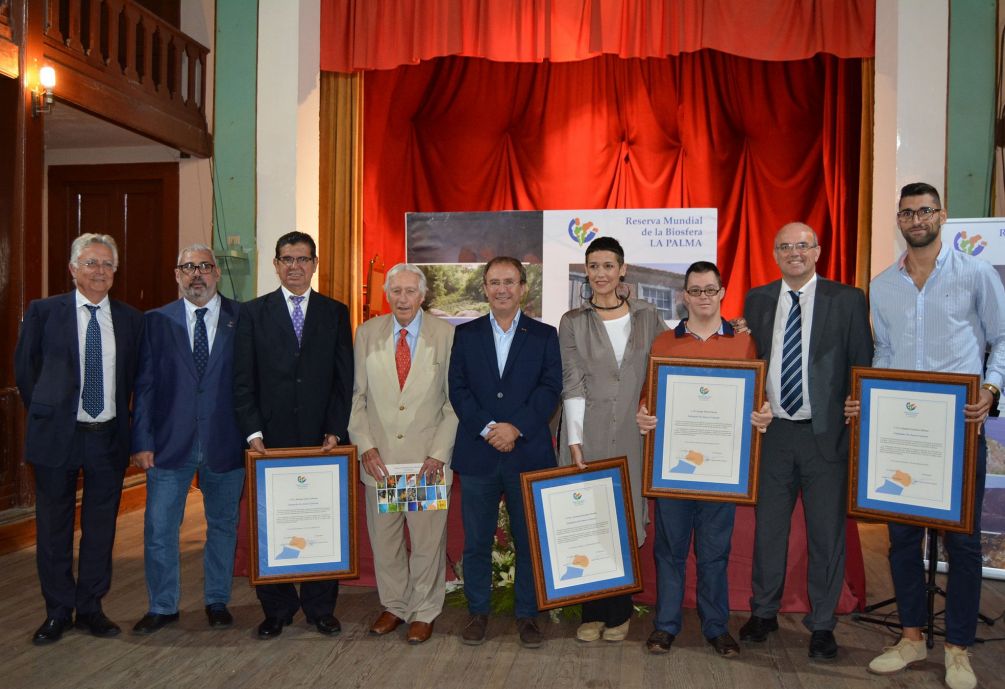La Palma World Biosphere Reserve, Cabildo Insular de La Palma and the Institute of Responsible Tourism have promoted on the Island the distinctive "Commitment to the Biosphere Destination", a recognition of commitment to tourism sustainability created from the "Biosphere Certification", to which 190 companies related to this productive sector have been added.

With the objective of promoting good practices in sustainable management of tourism businesses and services, the Institute of Responsible Tourism (RTI), an international organization that has been promoting responsible tourism worldwide for more than 20 years, and the Cabildo de La Palma, through the La Palma Biosphere Reserve, have boosted the distinctive "Commitment to the Biosphere Destination". A recognition of commitment to tourism sustainability created from the "Biosphere Certification" to which 190 companies and services have been added.
The island of La Palma has been accredited with the Biosphere Certification, in its Gold status, within the framework of the XVI Anniversary of the Declaration of La Palma as a World Biosphere Reserve. Here you can have a look at the summary of the Institutional Act.
The President of the Institute of Responsible Tourism Institute, Tomás Azcárate Bang, the President of Honor of the RTI and current President of the Spanish Commission for Cooperation with Unesco, Luis Ramallo Massanet, and the President of the Cabildo de La Palma, in turn President of the La Palma World Biosphere Reserve, Anselmo Pestana Padrón, participated in the public ceremony of delivery of this badge, at the Teatro Monterrey, in the municipality of El Paso, on Monday, November 5th.
Luis Ramallo, referred to the tourism sector as a key area of the productive sector to promote sustainability and argued that the collaboration between the Island of La Palma and the Institute places the focus on the tourism business sector as a driver of change, given its influence and weight in the economy. It is a model that pretends to be "an opportunity for the socio-cultural and environmental reactivation of those territories that bet on the development of sustainable models that integrate companies".
Anselmo Pestana, indicated that the "Commitment to the Destination Biosphere" wants to extend the culture of tourism sustainability in tourist companies and services of La Palma. It is a program developed by the Responsible Tourism Institute (RTI) and La Palma World Biosphere Reserve, together with the support of the Island Council of La Palma, whose main purpose is to implement a more sustainable management in all the agents of a tourist destination. In this way, a methodology has been promoted to guarantee the quality and sustainability of the tourist services of the destination, both public and private. A methodology born of the international prestige certification "Biosphere", which allows to acquire sufficient skills for the sustainable management of these tourist services under the banner of "Commitment to the Biosphere Destination".
As for Tomás Azcárate, he recalled that the Institute of Responsible Tourism (RTI) is an international organization that has been promoting responsible tourism for more than 20 years at an international level, helping all the actors involved in the tourism sector to develop a new way of traveling and of knowing the Planet. It was born and developed with this philosophy, incorporating to its quality standards the principles and recommendations of the World Charter for Sustainable Tourism +20, the 17 Sustainable Development Goals of the United Nations and the Paris Agreement guidelines (COP21) for the fight against climate change to promote sustainable tourism from all fronts, through a system of certifications under the Biosphere brand, which has earned him recognition, among other awards, as the European Environment Prize. Azcárate concluded by indicating that the island of La Palma opens a magnificent opportunity for responsible and differentiated socioeconomic development by combining the standards of the ITR with the values and strategies promoted by La Palma as a World Biosphere Reserve.